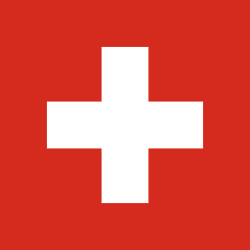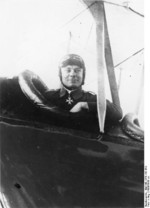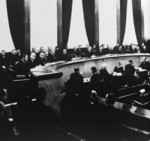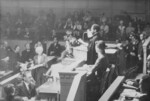
Switzerland
| Full Name | 97 Swiss Confederation | |
| Alliance | Neutral or Non-Belligerent | |
| Population in 1939 | 4,210,000 | |
| Civilian Deaths in WW2 | 100 |
Contributor: C. Peter Chen
ww2dbaseSwitzerland, a member of the League of Nations as of 1920, mobilized its military at the onset of the European War in Sep 1939, but declared its intention to remain neutral. In 1940, Germany invaded neutral Low Countries and the Soviet Union forcibly occupied the neutral Baltic States; seeing these precedents, the tension in Switzerland was high especially as German aircraft repeatedly violated Swiss air space during the campaign in France (11 German fighters would be shot down by Swiss fighters between 10 May and 17 Jun 1940) and as German saboteurs were caught red-handed attempting to damage Swiss airfields. The combination of Swiss trade concessions in favor of Germany and German attention toward Britain and later Soviet Union meant Switzerland ultimately would not go down the path suffered by the likes of Belgium and Estonia.
ww2dbaseLater in the war, as the Allies mounted aerial campaigns against German industrial targets in southern Germany, war once again came to neutral Switzerland. On 1 Apr 1944, Allied bombers attacked the Swiss city of Schaffhausen, mistaking it for the German city of Ludwigshafen am Rhein, killing 40 people; interestingly, a group of small factories producing munitions and aircraft parts to be sold to Germany was destroyed in this accidental raid. In Feb 1945, Allied bombers attacked Stein am Rhein, Vals, and Rafz. On 4 Mar 1945, Allied bombers attacked Basel and Zürich. In all cases, Switzerland protested but accepted the reason for them as accidental. During the war, crews of over 100 Allied aircraft which had landed in Switzerland, either forced down due to damage over southern Germany or shot down by the Swiss, were imprisoned for the duration of the war.
ww2dbaseBefore the war, in 1934, the Swiss Banking Act was passed; although it would later gain fame as the foundation of modern laws in which protected, with anonymity, the wealth of the well-to-do, at time a small part of the reason for this law was to allow German Jews to protect their assets abroad. Through 1945, Switzerland hosted 300,000 refugees, about 30,000 Jews and 30,000 non-Jews were specifically stated as fleeing from Nazi persecution. Despite these records, Switzerland, sharing a border with Germany, was also criticized for not having done more; in fact, somewhere between 10,000 to 24,000 Jews seeking refuge during the war were refused entry.
ww2dbaseSwitzerland was a central hub for diplomats and spies of both sides during the war. Of the most famous among the latter group was the anti-Nazi Lucy spy ring, which had connections to figures in high places in Germany (Hans Oster, Erich Fellgiebel, and Fritz Thiele, to name a few); the Lucy spy ring passed German military plans out to the Soviets in the first few years of the war, but it was devastated in the aftermath of the failed July Plot in 1944.
ww2dbaseAfter the war, on 21 Oct 1949, the United States paid 62,176,433.06 Swiss francs (not including US$4,000,000 already paid by Oct 1944) for damages done by American bombers. In return, Switzerland donated funds to the European Recovery Program (commonly known by its unofficial name "Marshall Plan") which aimed at the economic recovery of war ravaged Europe.
ww2dbaseSource: Wikipedia
Last Major Update: Oct 2013
| Weapons | ||
| 20 mm Oerlikon Anti-Aircraft Gun | KE-7 Machine Gun | |
| 20 mm S5-106 Anti-Aircraft Gun | Solothurn S-18/100 Anti-Tank Rifle | |
| Facilities | ||
| Wauwilermoos Military Prison | Prison Camp | |
Photographs
 |  |  |  |
Switzerland in World War II Interactive Map
Please consider supporting us on Patreon. Even $1 per month will go a long way! Thank you. Please help us spread the word: Stay updated with WW2DB: |
Visitor Submitted Comments
All visitor submitted comments are opinions of those making the submissions and do not reflect views of WW2DB.
- » Wreck of M-49 Found (10 Apr 2025)
- » Japanese Emperor Visited Iwoto (Iwo Jima) (8 Apr 2025)
- » Race, Holocaust, and African-American WW2 Histories Removed from the US Naval Academy Library (7 Apr 2025)
- » US Government Plans to Purge WW2 Information (17 Mar 2025)
- » See all news
- » 1,167 biographies
- » 337 events
- » 44,606 timeline entries
- » 1,243 ships
- » 350 aircraft models
- » 207 vehicle models
- » 376 weapon models
- » 123 historical documents
- » 261 facilities
- » 470 book reviews
- » 28,504 photos
- » 365 maps
Fleet Admiral Chester W. Nimitz, 16 Mar 1945
Please consider supporting us on Patreon. Even $1 a month will go a long way. Thank you!
Or, please support us by purchasing some WW2DB merchandise at TeeSpring, Thank you!
6 Jan 2015 01:13:59 AM
'Lucy' was the code name of a Bavarian anti-Nazi, Rudolf Rössler, living in exile in Switzerland. Together with an Hungarian, Sándor Radó, and an Englishman, Alexander Foote, he supplied Stalin with detailed information on German plans and intentions from 1941 to 1943, claiming to have obtained it from a group of anti-Nazi officers in the German army. In fact, as was only discovered many years later, Foote was actually providing him with ULTRA intercepts from British cryptographers at Bletchley Park, who were regularly deciphering German coded transmissions. The 'Lucy' ring was broken in the autumn of 1943 after German army intelligence located their radio transmitters and complained about this transgression of Swiss neutrality.